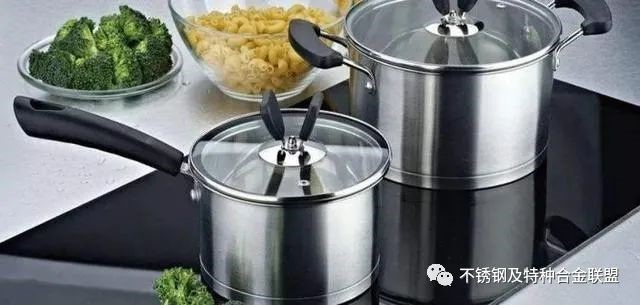Stainless steel is made of an alloy of iron, chromium, and nickel mixed with trace elements such as molybdenum, titanium, cobalt, and manganese. Its metal performance is good, and the utensils made are beautiful and durable, and the most important thing is that it does not rust when exposed to water. Therefore, many kitchen utensils are made of stainless steel. However, if stainless steel kitchen utensils are used improperly, heavy metal elements may slowly "accumulate" in the human body, endangering health.
Contraindications for the use of stainless steel kitchen utensils
1. Avoid storing too acidic food
Stainless steel tableware should not hold salt, soy sauce, vegetable soup, etc. for a long time, nor should it hold acidic juice for a long time. Because the electrolytes in these foods can have complex "electrochemical reactions" with the metal elements in the tableware, the heavy metals are dissolved and released.
2. Avoid washing with strong alkali and strong oxidizing agents
Such as alkaline water, soda and bleaching powder. Because these strong electrolytes will also "electrochemically react" with certain components in the tableware, thereby corroding the stainless steel tableware and causing it to dissolve harmful elements.
3. Avoid boiling and decocting Chinese herbal medicines
Because the composition of Chinese herbal medicine is complex, most of them contain a variety of alkaloids and organic acids. When heated, it is easy to chemically react with certain components in stainless steel, reducing the efficacy of the medicine.

4. Not suitable for empty burning
Because the thermal conductivity of stainless steel is lower than that of iron and aluminum products, and the heat conduction is relatively slow, empty firing will cause the chrome plating layer on the surface of the cooker to age and fall off.
5. Don’t buy inferior ones
Because such stainless steel tableware has poor raw materials and rough production, it may contain a variety of heavy metal elements that are harmful to human health, especially lead, aluminum, mercury and cadmium.
How to clean stainless steel kitchen utensils
Many families use stainless steel tableware because it is much stronger than ceramic tableware. But after using it for a long time, it will lose its original beautiful luster. It is a pity to throw it away, and I am worried about continuing to use it. What should I do?
The editor tells you a coup for cleaning stainless steel kitchen utensils:
1. Fill up 1 bottle of dish soap, then pour the dish soap from the bottle cap into an empty cup.
2. Pour 2 caps of ketchup, then pour the ketchup in the caps into a cup with dish soap.
3. Immediately scoop 3 caps of water into the cup.
4. Stir the infusion in the cup evenly, apply it on the tableware, and soak for 10 minutes.
5. Use a brush to brush again, and finally rinse with clean water and it will be OK.
Reason: The acetic acid in ketchup reacts chemically with the metal, making the stainless steel pans shiny and new.
Reminder: This method is also applicable to kitchen utensils made of other materials that are very dirty and dark.
How to maintain stainless steel kitchen utensils
If you want stainless steel kitchen utensils to have a long service life, you have to maintain them. In the words of ordinary people, you need to "use it leisurely".
1. Before use, you can apply a thin layer of vegetable oil on the surface of stainless steel kitchenware, and then put it on the fire to dry, which is equivalent to applying a protective film on the surface of the kitchenware. In this way, it is not only easy to clean, but also prolongs the service life.
2. Never use steel wool to scrub stainless steel kitchen utensils, as it is easy to leave marks and damage the surface of the kitchen utensils. Use a soft cloth or purchase a special cleaner. Clean it in time after use, otherwise the stainless steel kitchen utensils will become dull and dent.
3. Do not soak stainless steel kitchen utensils in water for a long time, otherwise the surface of the kitchen utensils will be dull and dull. Stainless steel conducts heat faster, so don't use high heat after putting oil in the stainless steel pot.
4. After a long time of use, stainless steel kitchen utensils will show brown rust, which is a substance formed by the condensation of minerals in water for a long time. Pour a small amount of white vinegar into the stainless steel pot and shake it well, then boil it slowly, the rust will disappear, and then wash it with detergent.

Post time: Aug-21-2023




